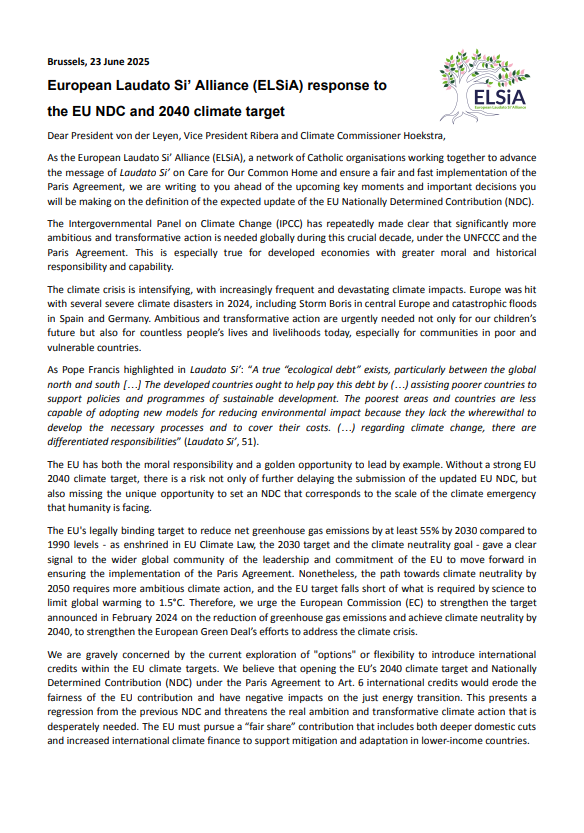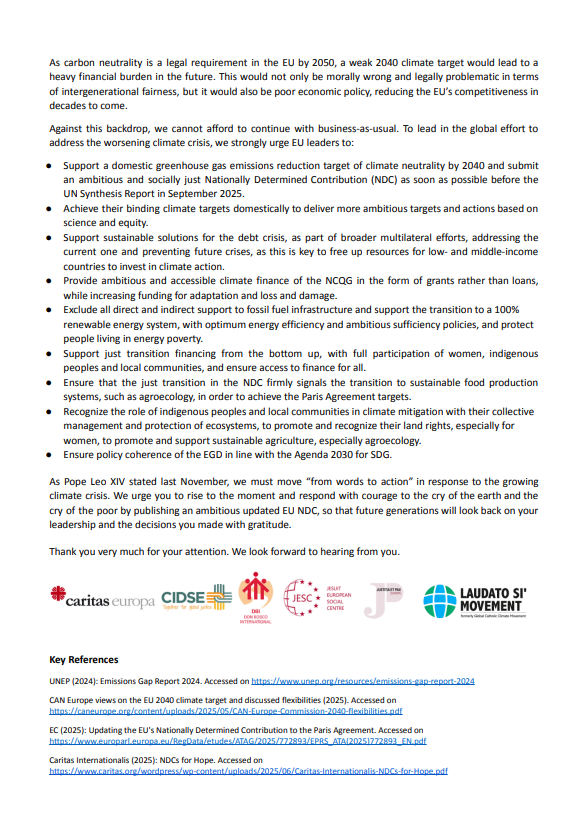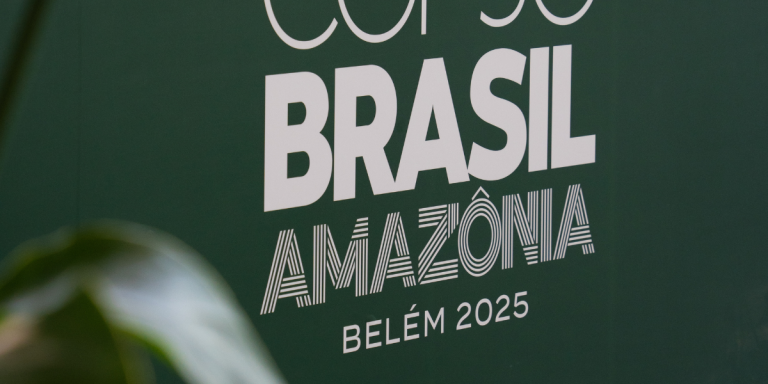An urgent call has been issued to EU leaders, asking them to act with ambition, fairness and courage in defining the updated EU Nationally Determined Contribution (NDC) and setting a 2040 climate target that responds to the scale of the climate crisis.
In a formal letter addressed to European Commission President Ursula von der Leyen, Executive Vice President Teresa Ribera, and Climate Commissioner Wopke Hoekstra, we respectfully urge the EU to commit to climate neutrality by 2040 and to avoid harmful loopholes such as international carbon credits.
A Moral and Political Imperative
The Intergovernmental Panel on Climate Change (IPCC) has repeatedly warned that only immediate and transformative action can limit global warming to 1.5°C. As a historically high emitter with strong economic capacity, the EU has a moral responsibility to lead by example.
Pope Francis’s Laudato Si’ invites us to consider the idea of an ‘ecological debt’ that exists between the Global North and South, and suggests that wealthier countries consider supporting sustainable development in vulnerable regions. In our letter, we respectfully echo that call, highlighting that a weak EU climate target would not only be unjust, but economically short-sighted.


Our Key Recommendations
In our letter, we outline several critical recommendations for the European Commission, including:
- Commit to climate neutrality by 2040, delivering ambitious domestic emissions reductions based on science and equity.
- Reject the use of international carbon credits in the EU’s NDC to preserve environmental integrity and fairness.
- Increase accessible climate finance, particularly in the form of grants, to support mitigation and adaptation in low-income countries.
- End fossil fuel subsidies and transition to 100% renewable energy, with strong energy efficiency and sufficiency policies.
- Support sustainable agriculture and food systems, particularly agroecology, as part of a just transition.
- Ensure meaningful participation of women, indigenous peoples, and local communities in climate decision-making.
- Promote policy coherence between the European Green Deal and the 2030 Agenda for Sustainable Development.
Leading with Integrity
With the UN set to publish a synthesis of updated NDCs in September 2025, the EU has a unique opportunity to send a strong signal of leadership, solidarity, and commitment to climate justice. We stress that delaying or weakening climate ambition now would increase costs and risks for future generations.



